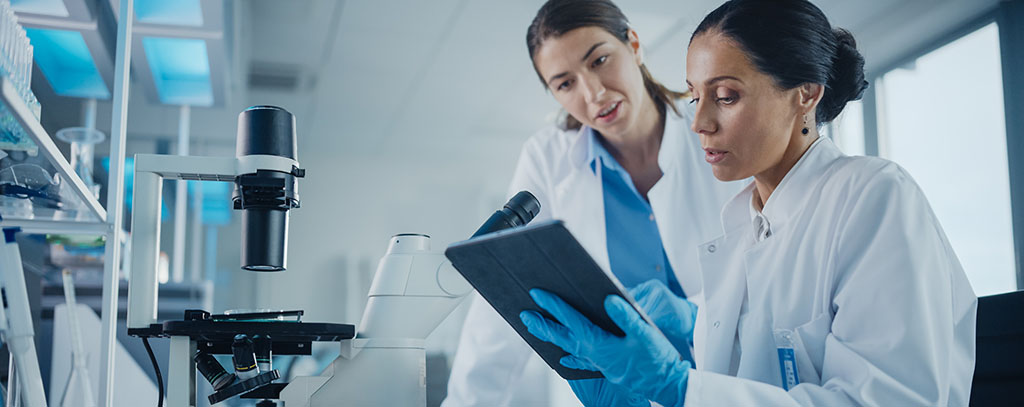


On-Site Drug Testing for Businesses: Pros and Cons Unveiled
October 3, 2023


Comparing Drug Testing Methods: Urine, Saliva vs. Hair Tests
October 4, 2023Imagine walking a tightrope. On one side, you've got employers' need to maintain a safe and productive workplace. On the other, employees' rights for privacy and respect.
This delicate balance is exactly what we face when exploring The Legal Aspects of Drug Testing.
We all know drug testing happens, but do we really understand its legal implications? Are there rules protecting us from unwarranted intrusion?
In this rollercoaster ride through law and science, you'll learn about different types of tests available – urine or hair anyone? We’ll also dive into how results are collected accurately while respecting your rights.
Finally, let's not forget the consequences if things go south - spoiler alert: it’s more than just losing your job!
Table of contents
- Navigating the Maze of Drug Testing Laws
- Understanding Employer Rights to Drug Testing
- Employee Rights During Drug Testing: The Essentials
- Exploring the Different Types of Drug Tests
- Understanding the Process of Drug Test Collection
- Unraveling the Accuracy of Drug Test Results
- Consequences for Positive Tests: The Aftermath of Workplace Drug and Alcohol Screening
- FAQs in Relation to The Legal Aspects of Drug Testing
- Conclusion
Navigating the Maze of Drug Testing Laws
Navigating the workplace drug testing laws can be intimidating, but with a bit of direction it doesn't have to be so overwhelming. Let's delve into these rules and regulations.
1. Understanding Federal Regulations
The first step is to get familiar with federal guidelines. The U.S. Department of Transportation (DOT), for instance, sets out clear drug testing mandates for safety-sensitive industries like trucking or aviation - they must have random tests.
Beyond DOT directives, we also need to consider how legislation such as the Americans with Disabilities Act (ADA) influences our policies by prohibiting disability-based discrimination, which includes certain substance use disorders.
2. Delving Into State-Specific Legislation
Federal laws aren't the only ones to consider; each state has its own take on employee drug testing too. Some states limit when and how employers can conduct these tests, while others offer protections for medical marijuana users - so it's important to know your local legal landscape.
3. Crafting an Effective Workplace Drug Policy
To keep your company's interests safe and respect employees' rights at the same time, you need to carefully craft a robust workplace drug policy that fully complies with relevant laws.
- Your policy should clearly define what counts as a violation: typically, any detectable amount of illegal drugs or misuse of prescription medication will be considered a violation.
- The procedures for conducting drug tests must also be outlined – including when they will happen and what methods will be used. The necessity for a secure work atmosphere and safeguarding employees' privacy should be weighed carefully.
- Lastly, your policy needs to specify the consequences of violating it – from disciplinary action up to termination, and under which conditions an employee can return to work after such a violation.
Understanding Employer Rights to Drug Testing
The difficult equilibrium between an employer's authority to execute substance and alcohol assessments, and a worker's entitlement to secrecy, is a complicated problem. Legislation at the federal, state and municipal levels oversee guidelines for drug testing in workplaces. Let's delve into the details.
"Safety-sensitive industries such as transportation or defense have federal support when it comes to mandatory drug testing."
The DOT guidelines provide a clear framework for drug testing in these industries. State laws can differ from the federal guidelines on drug testing for safety-sensitive industries.
Variations in State Laws Regarding Drug Testing
No two states have identical perspectives on employer-initiated drug tests. Some states allow random testing, while others only permit it under specific conditions.
- Federal law permits mandatory drug testing in certain sectors.
- Different states uphold varying regulations regarding drug tests.
- Employee consent is a crucial factor in ensuring the legality of drug screening procedures.
Striking a Balance: Privacy vs. Safety
Protecting employee privacy while maintaining a drug-free work environment can be challenging. It requires careful consideration and expert guidance, as legal matters are rarely straightforward.
"Transparency is key to establishing legally sound practices."
The Importance of Consent in Drug Testing
In most cases, employers must obtain written consent from employees before conducting drug tests. This emphasizes the significance of consent, as it promotes transparency between both parties and safeguards businesses from potential legal complications in the future.
Employee Rights During Drug Testing: The Essentials
Drug testing in the workplace can be a bit daunting. But, don't worry. Employees have specific rights that protect their privacy and confidentiality during this process.
Have you ever wondered about your personal space during drug testing? Well, you have every right to keep it private. Employers are not allowed to watch while you provide a urine sample unless they suspect tampering - talk about an invasion of privacy.
But it doesn't stop there; let's talk about medical information too. Thanks to the Americans with Disabilities Act (ADA), employers must treat any health-related data as confidential and store them in separate medical files.
All About Confidentiality Protections
Apart from maintaining your physical privacy during sample collection, another important right is directly linked to the confidentiality of test results. Any lab analyzing samples must strictly follow SAMHSA guidelines. These rules require labs and Medical Review Officers (MROs) to maintain strict secrecy regarding test results – no sharing without written consent from the individual tested.
If an employer decides to use onsite rapid screening tools like Halux Diagnostic supplies, they are responsible under ADA laws, along with state-specific regulations, for ensuring complete confidentiality around test outcomes or any related issues that may arise.
The Power To Challenge Results And Retesting Options
Fairness is not just a concept when it comes to workplace drug testing procedures – employees have real opportunities for retesting if initial tests show positive results. According to the DOT, a follow-up test utilizing GC/MS is required in all industries that are regulated.
But wait, there's more. Workers can question positive results and ask for a retest at another lab. This gives an extra layer of protection against mistakes or false positives. Now that's what you call respecting employee rights.
Exploring the Different Types of Drug Tests
When it comes to drug testing, there is a wide range of options available. Various testing methods exist, each possessing its own distinct characteristics and applications.
And guess what? The choices are extensive and diverse. You have urine tests, hair follicle tests, saliva tests, blood tests... the list goes on.
The Lowdown on Urine Drug Testing
If you are looking for something non-invasive and cost-effective, urine drug testing is the way to go. It is perfect for workplace settings or medical exams.
But remember: no test is perfect. For instance, urine tests might miss recent substance use as metabolites take time to appear in urine.
Hair Follicle Drug Testing: What’s Up with That?
Are you interested in long-term usage patterns? Hair follicle drug testing provides just that. It can detect drug use for up to 90 days based on samples collected from the scalp. Pretty cool, right?
Bear in mind, however, that this kind of testing is pricier than a urine exam and could be affected by factors such as hair color or treatments which may influence the accuracy of results.
A Quick Word About Saliva Drug Testing
Say hello to convenience with saliva drug testing – another non-invasive option. The best part? It can detect substance use within minutes after ingestion.
However, there are some challenges with saliva testing, such as a limited detection window (usually up to 48 hours) and susceptibility to tampering.
Blood Drug Testing: Accurate but Invasive
Blood drug tests, while invasive and pricier compared to other methods, score high on accuracy. They are highly sensitive and can detect recent drug usage within minutes after ingestion.
However, it is important to remember that the need for trained personnel to collect blood samples limits their widespread use compared to other testing methods.
So, picking the right drug test isn't a walk in the park. You've got to juggle legal stuff and your own needs. Keep that balance.
Understanding the Process of Drug Test Collection
By breaking down drug testing into its core components, one can easily understand the process. Let's explore this by examining chain-of-custody protocols and specimen handling requirements.
The Basics of Chain-of-Custody Protocols
To ensure accurate and reliable drug test results, we must begin with secure collection procedures. How does this work? It all starts with chain-of-custody protocols.
This system is akin to a baton relay race - each participant (or sample) must be securely passed on without any hiccups along the way. From verifying the donor's identity to sealing collected samples under vigilant supervision, every step is crucial.
An essential aspect of this process is documenting everything as evidence that no tampering has occurred during transit or storage.
Navigating Specimen Handling Requirements
Now, let's shift our focus to specimen handling requirements. This involves the proper treatment of collected samples after collection to ensure reliable test outcomes.
All specimens should be stored at appropriate temperatures immediately after collection. Urine samples, for instance, usually require refrigeration within an hour if not tested immediately. In certain cases, freezing may also be necessary, following guidelines from authorities such as the Substance Abuse and Mental Health Services Administration (SAMHSA).
Different Types: Blood Test vs Hair Test vs Urine Test Collection Procedures
- Blood Tests: These involve drawing blood from a vein, typically in your arm, using sterile equipment before sending it off for lab analysis.
- Hair Tests: A small sample of hair is collected, usually from the crown of the head.
- Urine Tests: The most common type, where you provide a urine sample in a specially designed secure cup. It’s as simple as that.
Every test, no matter the type, needs us to stick strictly to chain-of-custody rules and handle specimens correctly. This is crucial for accurate results.
Unraveling the Accuracy of Drug Test Results
Different drug tests can offer varying levels of accuracy, making it a crucial topic to discuss when evaluating their results.
While some may assume that all tests are created equal, the reality is quite different. In fact, this can be compared to the growth of Express Writers, once a small startup that evolved into a million-dollar business by understanding and adapting to different market needs.
A Closer Look at Different Types of Drug Tests
Urine tests are commonly used due to their cost-effectiveness. Nevertheless, as with any sector aiming to expand, there is always potential for further development.
Similar to entrepreneurs exploring new opportunities in an ever-evolving marketplace, scientists and researchers continuously develop more accurate testing methods. Blood tests have emerged as one such method, offering higher accuracy rates than urine tests, albeit with increased costs and invasiveness.
The Enigma of False Positives
No test is immune from producing false positives, where substances mimicking illegal drugs trigger positive results even though no illicit substance was consumed. This phenomenon draws an interesting parallel to entrepreneurial ventures: sometimes, what appears promising on the surface may not hold up under closer scrutiny.
- Navigating Potential Pitfalls
Foods such as poppy seeds or hemp seed products could lead to false positives for opioids, while certain cold medicines could mimic methamphetamines on some drug screens. Just as businesses need effective strategies for overcoming challenges, those interpreting drug test results must also understand these potential pitfalls.
- Taking Action To Improve Accuracy
Improving the accuracy of drug test results can be achieved through various measures. This includes retesting samples, using different testing methods for confirmation, and employing trained professionals to interpret results. In business terms, this could be likened to optimizing operations or investing in professional development for your team.
Consequences for Positive Tests: The Aftermath of Workplace Drug and Alcohol Screening
The workplace can become a minefield when employees test positive for drugs or alcohol. But what exactly happens after the confirmation? Let's delve into the potential consequences that could follow.
"Positive drug tests in the workplace can lead to immediate job loss, legal implications, licensing risks, and even social stigma."
Potential Employment Actions: From Suspension to Termination
A positive result might mean an instant goodbye from your employer. It all depends on their policy - some may choose immediate termination while others might opt for temporary suspension pending further investigation. If there's hope for rehabilitation, employers might consider referring you to substance abuse programs instead of showing you the door right away.
Legal Implications: More Than Just A Job On The Line
Your troubles don't stop at losing your job; there could be legal ramifications too. Some states require reporting of these results to law enforcement agencies or regulatory bodies like the Federal Motor Carrier Safety Administration (FMCSA), especially if you're working in industries such as transportation.
Licensing Consequences: Your Career At Stake
Certain professions demand licenses which could be threatened by a confirmed positive test result. Medical professionals risk losing their license under substance abuse regulations set by medical boards. Commercial drivers also face severe penalties including suspension or revocation of driving privileges under FMCSA rules.
Social Stigma and Career Impact: The Long-Term Consequences
Then there's the social stigma and career setbacks that follow a positive drug test. These can impact future job prospects, personal relationships, leading to long-term effects that are hard to measure but significant nonetheless.
In short, getting caught with drugs or alcohol in the workplace is serious - it can have major repercussions. It's always smarter to stay ahead of the game by understanding the dangers of substance abuse and offering help for those in a tough spot.
FAQs in Relation to The Legal Aspects of Drug Testing
Does drug testing violate the 4th Amendment?
No, workplace drug testing does not infringe on the Fourth Amendment. However, it must be reasonable and respect employees' privacy rights.
What laws should companies be aware of when implementing a drug testing program?
Firms need to comply with federal regulations like the Americans with Disabilities Act (ADA) and state-specific laws governing workplace drug testing.
What OSHA says about drug testing?
The Occupational Safety and Health Administration (OSHA) permits post-accident drug tests but cautions against using them as retaliation or deterrence for reporting incidents.
What is a major limitation of drug testing?
A significant drawback is that tests can't accurately determine impairment levels or specific times of substance use. False positives are also possible due to certain medications.
Conclusion
Navigating the legal aspects of drug testing in the workplace is a delicate balance between employers' safety concerns and employees' rights to privacy. Understanding federal and state regulations, crafting effective workplace drug policies, and obtaining consent are essential steps. Employees have rights related to privacy, confidentiality, and the ability to challenge results. Various types of drug tests come with their pros and cons, and accurate collection and handling of specimens are crucial for reliable results.
The accuracy of drug test results varies, and false positives can occur. Consequences for positive tests can range from job loss and legal implications to licensing risks and social stigma. It's essential to be aware of the potential legal and career consequences of workplace drug testing. Finally, the article addresses frequently asked questions related to drug testing legality, privacy, and limitations.
For more details, check Halux Diagnostics!





